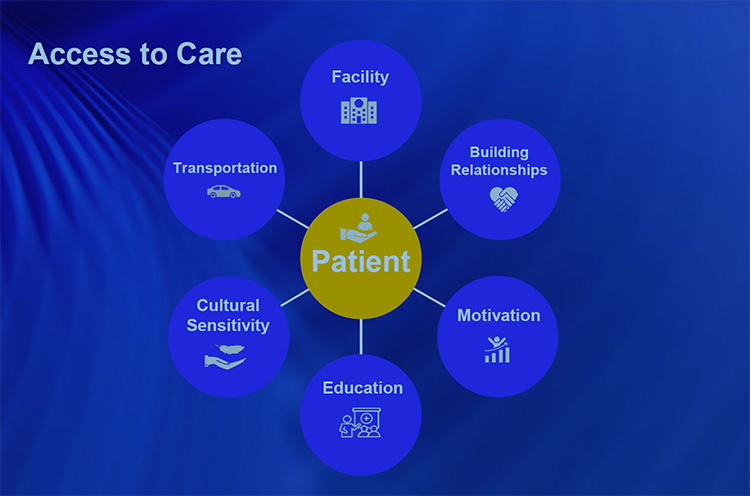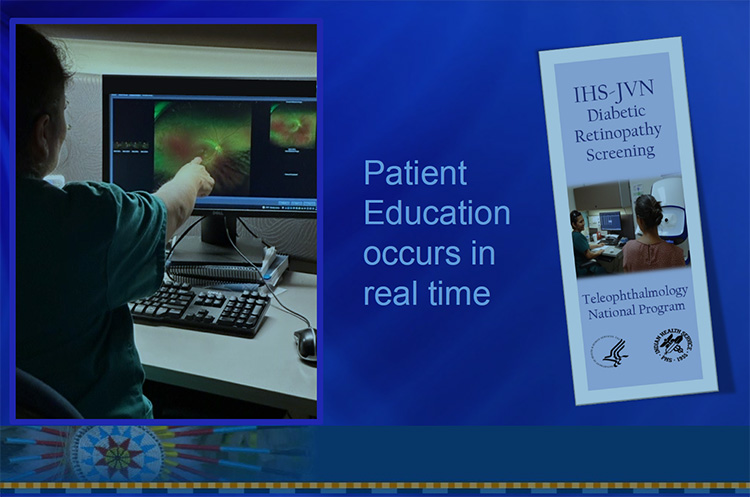Increasing Access to Eye Care
Annual retinal examinations for all patients with diabetes can help prevent diabetes-related blindness. These exams identify people at high risk for losing their vision and those requiring treatment to prevent vision loss. For many people with diabetes, travel to a specialty eye clinic for a dilated eye exam can be difficult, so some patients might defer the exam. For this and other reasons that may limit access to care, only half of American Indians and Alaska Natives with diabetes obtain the annual retinal examination needed to identify high risk disease and prevent vision loss.
To address this gap in health care and improve access to care, special federal appropriations created the IHS-JVN Teleophthalmology Program in 2000. The program uses innovative telemedicine technology developed at the Joslin Diabetes Center in Boston to provide diabetic retinal exams to patients with diabetes. These exams are provided as part of the primary care visit and do not require a separate trip to an eye care specialist.
The IHS-JVN Teleophthalmology Program is currently available at over 120 IHS/Tribal/Urban primary care clinics, which allows patients to obtain a diabetic retinal exam during a regularly scheduled medical appointment. Clinic staff capture images of the patient's eyes using a specialized camera without the use of dilating eye drops. Computer software transmits the images to the IHS-JVN National Reading Center located in Phoenix, AZ. IHS eye doctors specially trained by the Joslin Diabetes Center interpret the images and generate a report that is available for the patient's primary care provider. The report includes the level of diabetic retinopathy, presence of any non-diabetic eye disease and recommended referrals or other management.
The IHS-JVN program is a primary care tool that enables health care providers to offer diabetic retinal examinations in the primary care clinic. It also provides an opportunity to educate, motivate and identify other barriers to obtaining retinal eye examinations. A team effort that includes the imagers, primary care providers, and the IHS-JVN Teleophthalmology staff is critical for success of the program.


 Click to view larger image.
Click to view larger image. Click to view larger image.
Click to view larger image.